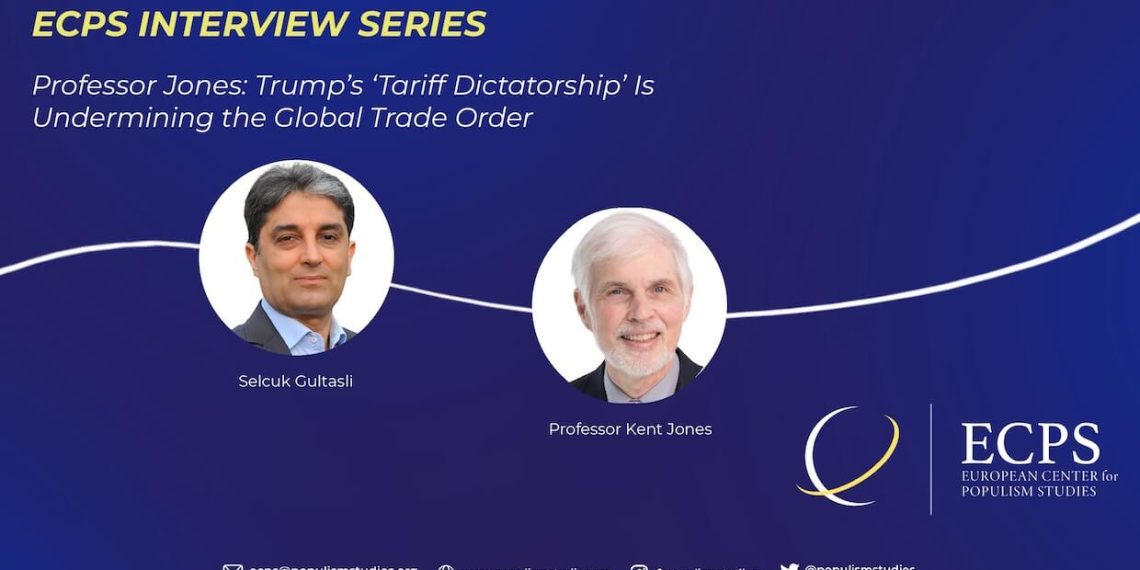In an in-depth interview with ECPS, Professor Kent Jones warns that Donald Trump’s second-term trade strategy amounts to a “tariff dictatorship,” dismantling WTO norms and centralizing unprecedented power. “Trade has become a populist weapon,” says Professor Jones, “used to stoke anger and identify scapegoats rather than manage the economy.” He explains how Trump’s emotionally charged, anti-globalist rhetoric recasts trade deficits as existential threats while ignoring economic realities. Yet Professor Jones remains cautiously hopeful: “Globalization has faced downturns before. The human impulse to exchange and specialize endures.” As America retreats, he argues, others may step up. “If the US won’t lead, new trade alliances will form. But unpredictability is a burden—not a strength.”
Interview by Selcuk Gultasli
In this timely and wide-ranging interview with the European Center for Populism Studies (ECPS), Prof. Kent Jones—Professor Emeritus of International Economics at Babson College and author of Populism and Trade: The Challenge to the Global Trading System—offers a sobering yet analytically rich critique of the Trump administration’s second-term trade strategy. Drawing on decades of experience and deep institutional knowledge, Professor Jones warns that the United States is no longer the steward of the postwar liberal trade order, but rather its chief saboteur. He argues that President Donald Trump’s erratic and hyper-personalized approach to trade—what he calls a “tariff dictatorship”—has effectively dismantled key pillars of the World Trade Organization (WTO), including most-favored-nation treatment and tariff binding, while concentrating unprecedented power in the hands of one individual.
Professor Jones emphasizes that trade policy, under Trump, has ceased to function as a tool of economic management and has instead become a populist weapon—repurposed to rally a nationalist, anti-elite political base through emotionally charged narratives about foreign threats and national decline. Trade deficits are recast as existential challenges, tariffs are imposed arbitrarily, and America’s longstanding commitments to multilateralism are eroded in favor of bilateral, loyalty-based deals that reflect Trump’s personal brand of grievance politics.
Yet amid this bleak portrait of institutional decay and populist distortion, Professor Jones also leaves room for cautious optimism. He underscores that globalization has weathered cyclical downturns before and that the human impulse to exchange, specialize, and cooperate across borders remains strong. While the US has stepped back, other actors—including the European Union, Canada, and emerging regional blocs—may step forward to rebuild a rules-based trade system, albeit imperfectly and without American leadership. Furthermore, Professor Jones suggests that the very unpredictability and economic pain caused by Trump’s tariffs may provoke renewed public scrutiny, mobilizing calls for Congress to reclaim its constitutional role in trade policymaking.
Ultimately, Professor Jones invites us to consider not only what has been lost, but what might still be recovered—provided that political institutions, civil society, and international alliances respond with resolve. As the world faces growing economic fragmentation, his insights provide a vital lens for understanding what’s at stake and how democratic societies might chart a path forward.


